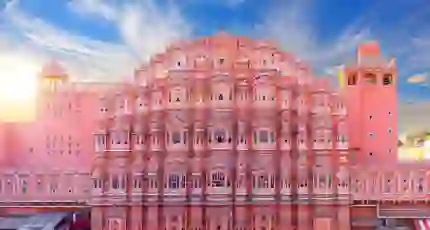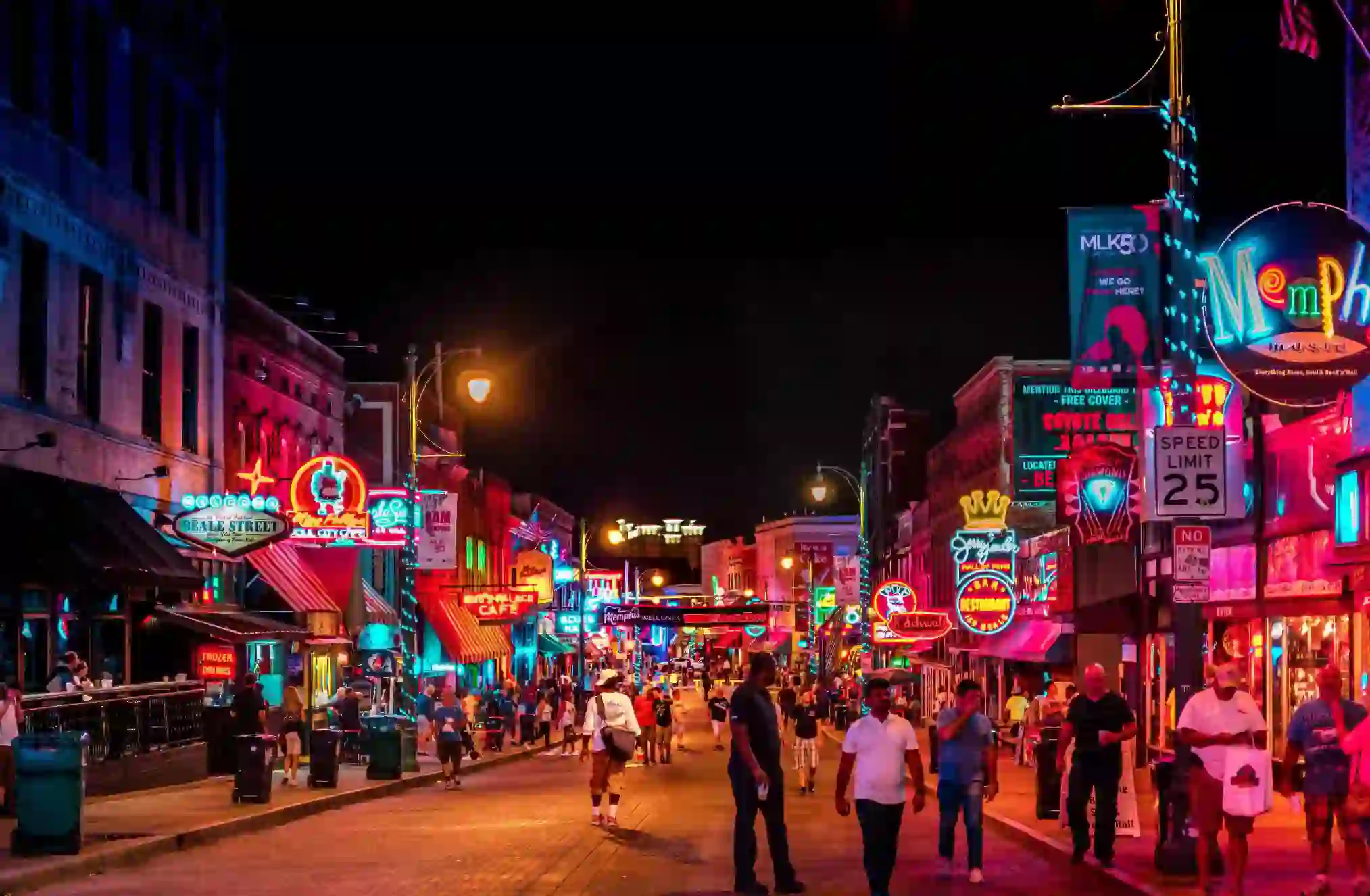
Best food in India by region
Hailed for its fragrant, tangy and tantalisingly spicy flavours, it’s little wonder that India’s distinctive fare is one of the world’s most popular cuisines. In India, food is as diverse as it is delicious. From curries and stews to salads and kebabs, there's something to suit almost every palate. Those with a sweet tooth will also be very well catered for, with a plethora of desserts and fried sugary snacks to sample.
If you travel around the country, you’ll soon discover that Indian cuisine differs considerably across the regions. Varying soil types, climates and cultures all play their part, not to mention the influence of colonialism. Potatoes, tomatoes and chillies, for example, were all introduced during Portuguese rule. Religion has also had a significant impact, with Hindu, Jain and Buddhist faiths all favouring a vegetarian diet - in fact, one-third of India’s population is considered to be vegetarian.
But what exactly are these regional variations? And where should we go to sample traditional Indian dishes that we’ve come to know and love? Have a read of our guide to food in India to find out more.
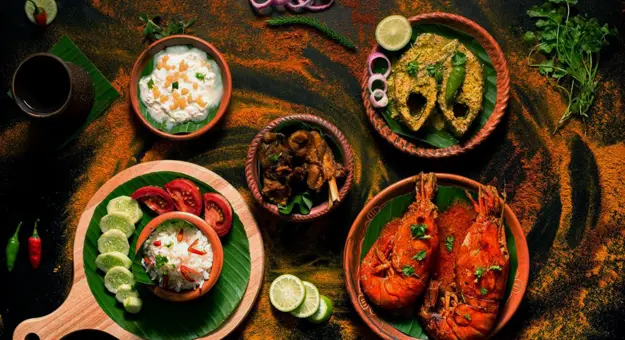
Bengal
If you are travelling to West Bengal, perhaps to see the grand colonial architecture in Kolkata or sip tea at a plantation in Darjeeling, you will have the chance to sample authentic Bengali cuisine. Fish is widely eaten, and is cooked in various ways, from steaming and stewing to frying and braising. Meats such as chicken, mutton and goat are also popular, and vegetables, lentils and rice are staples across the region.
While traditional food in India is usually eaten as various plates all at once, Bengali meals differ in that they are usually eaten in courses, with a deviation from the strict order considered bad etiquette. A typical meal begins with a bitter-tasting stew-type dish such as shukto and ends with a dessert such as mishti doi (sweet yoghurt), with various fritters, dal, curries, and chutneys in between. The meal centres around foods that can be eaten four distinct ways: "charbya, choṣya, lehya, peya", or "chew, suck, lick, drink".
DON’T MISS: Malai chingri, a creamy prawn curry made with coconut milk, or aloo potol posto, pointed gourd and potato cooked in poppy seed paste.
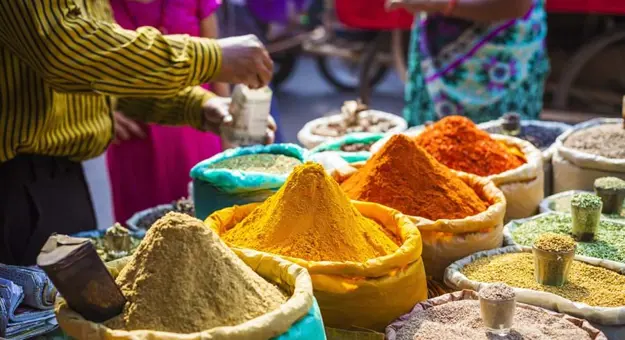
Uttarakhand
Given its mountainous Himalayan landscape, the cuisine of the Uttarakhand region provides some of the healthiest and heartiest food in India. Vegetables, pulses and lentils feature heavily on the regional menu, with dishes typically made over a slow wood fire. Simple but packed full of protein, the food here will keep you fuelled for a busy day exploring the region's breathtaking peaks and valleys.
Uttarakhand differs from typical northern Indian cuisine as it centres on simplicity and freshness without complex use of spices. That's not to say the food here is boring, though - you'll find plenty of flavour while enjoying dishes that are unique to this spellbinding region.
DON’T MISS: Baadi, a staple rice dish made from Choon or Mandua flour, usually served alongside phaanu, a soup-style delicacy made from soaked lentils.
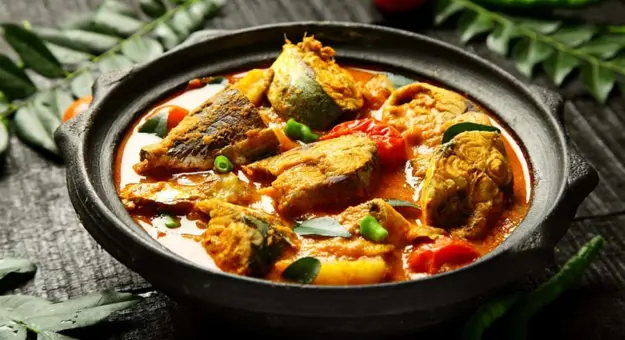
Delhi
Delhi cuisine has its roots in a wide variety of influences, ranging from Turkish and Arabic to Rajput and Mughal, making for a wonderfully diverse and unique food experience. Those following a plant-based diet will find plenty of meat-free dishes to choose from. You will also find many familiar delicacies here, including butter chicken - a dish so beloved that two local restaurants are currently locked in a lawsuit to determine which invented it.
As the capital of street food in India, you can find delicious snacks and quick meals on almost every street corner. There is no better place in the country to sample favourites such as aloo tikki (crispy potato and rice flour fritters) or kulfi (ice cream).
DON'T MISS: Kebabs. Precisely spiced and grilled to perfection, Delhi has the best kebabs in India, as well as the most varieties. You can find them both at street stalls and in restaurants.
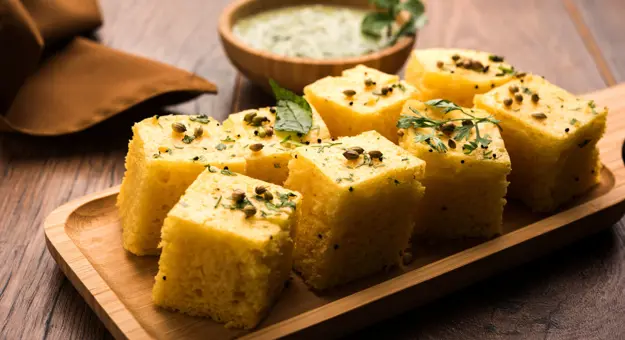
Gujarat
The western state of Gujarat has the longest coastline in India, so it is somewhat surprising that the cuisine here is predominantly vegetarian. While some communities along the coast eat seafood as part of their diet, the majority of Gujarati people are meat-free, largely due to the popularity of Jainism.
The summers here are extremely hot, with highs of 50°C, and the cuisine often reflects this, with sweet dishes like the yoghurt-based shrikhand and aam panna, a refreshing mango drink, used to cool down. Gujarati cuisine is best enjoyed with a thali - a platter composed of a variety of delicacies in small bowls. A typical thali will include curry, daal, fried delicacies, yoghurt-based dishes, soups, rice and pulses. Snacking is also a passionate pastime here, with snacks or "farsan" such as khakhra (spicy and crispy flatbreads) eaten between meals.
DON’T MISS: Dhokla, a Gujarati breakfast food and snack made of fermented rice and chickpea batter.
Eat your way around India on one of our tours
- On a guided tour, see the pavilions and palaces of Agra Fort and the famed monument of love, the UNESCO-listed Taj Mahal
- Visit one of Delhi’s most famous and historical monuments, Qutub Minar
- Travel by Jeep to the red sandstone ramparts of the sixth-century Amber Fort
- Flights included
11 days from £1,412 pp
was £1,765 pp
Dates Available
May 2026 - November 2028
Duration
11 days
Depart From
6 airports
Excursions & Visits
12 included
Meals
22 included
- Cruise through Alleppey’s verdant backwaters on a traditional thatched houseboat
- Marvel at the Chinese fishing nets along Kochi’s harbour
- Take in the garden city of Bangalore and explore the elegant Summer Palace, a former residence of Mysorean ruler Tipu Sultan
- Flights included
18 days from £2,193 pp
was £2,579 pp
Dates Available
April 2026 - November 2028
Duration
18 days
Depart From
3 airports
Excursions & Visits
14 included
Meals
32 included
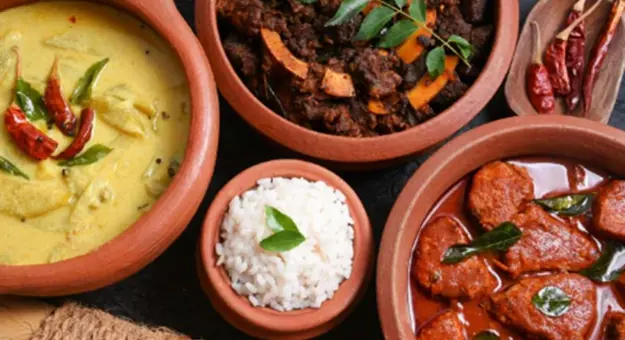
Maharashtra
Home to sites such as the Gateway of India, the Shri Trimbakeshwar Shiva Temple and the ancient cave paintings of Ajanta, Maharashtra has much to offer visitors. The same can be said for its cuisine, which is known for its rich and pleasantly spicy flavours. While the cuisine has its roots in ancient traditions, influences can be seen from Britain (potatoes and eggs) and Portugal (bread and vinegar). Coconut, peanuts, and sesame seeds are a few staple ingredients.
The state's capital city, Mumbai, is a vibrant metropolis with a fantastic and diverse culinary scene. Street food is diverse and delicious, with favourites such as vada pav (a roll stuffed with a potato fritter) and pani puri (hollowed dough balls filled with potato, onion, chickpeas, and chutney). While the price of food in India is usually very cheap, as India's most expensive city, eating out in Mumbai is comparatively pricier.
DON'T MISS: Bharleli vangi - a curry made from aubergines stuffed with nuts, coconut and masala, or besan pithla, a creamy vegan curry made with gram flour.
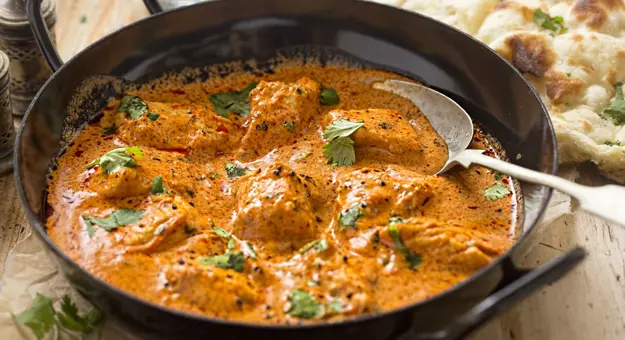
Goa
Unsurprisingly given its paradisiacal beaches and tropical weather, Goa is a much-loved destination for many travellers seeking sun, sand and serenity. When it comes to the state's cuisine, flavourful and vibrant dishes are the mainstay. There are influences from Hinduism, Portugal, Brazil, China, Africa and Malaysia and France, resulting in a unique array of flavours and dishes.
Lovers of spice will have a field day here - Goan cuisine is synonymous with chilli peppers and there are plenty of fiery dishes to sample. Thankfully, there is also a healthy offering of milder dishes for those not keen on hot dishes. Fish such as kingfish, tuna and mackerel are staples and used to make the state's famous fish curry. Other popular ingredients include seafood such as prawns, crabs and lobsters, as well as rice, coconut, and pork.
DON'T MISS: Vindaloo. This famous Indian dish is made with pork, red wine vinegar and chillies and really packs a punch.
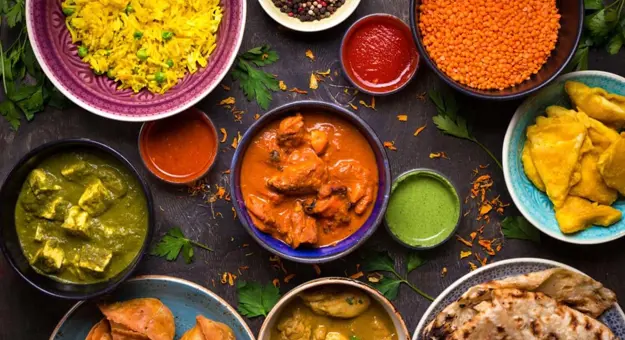
Punjab
Home to bustling cities like Amritsar and Ludhiana and sights like the Golden Temple, the state of Punjab has plenty to offer visitors. Not only that, but the region is responsible for the creation of some of the most popular food in India. Rustic and rich, Punjabi cuisine commonly includes butter and ghee, potatoes, grains, meats such as goat, and fish, with both meat and plant based dishes readily available.
The state's agricultural setting makes it a prime location for growing fruits, vegetables, and wheat, and is affectionately known as India's bread basket. Many dishes are cooked in the traditional style with a tandoor oven. Masala chai, or tea, is a popular everyday drink, and yoghurt-based lassi drinks are a favourite to cool down in the summer heat.
DON'T MISS: Sarson da saag, a blend of spiced mustard leaves and spinach, and hariyali chicken, a green curry flavoured by mint and coriander.
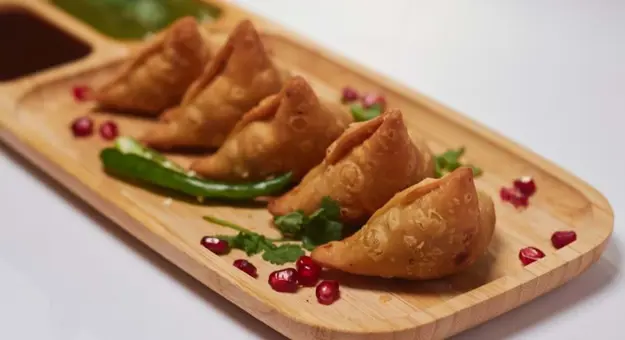
Northern India
Northern India is not only the home of many of the country’s best attractions – the Taj Mahal, Ranthambore National Park and the Golden Triangle – it is also where you’ll find many of the western world’s most popular Indian dishes.
This is the birthplace of creamy korma, roti and naan, as well as some of the best snack food in India, including the ubiquitous samosa. Dishes in this region tend to be quite rich, due to the liberal use of milk and ghee. During its time under Mughal rule, the region saw a wealth of Middle Eastern flavours being introduced into its cuisine. The clay tandoor oven is popular here, particularly for cooking meat, and is how the old favourite tandoori chicken was born.
DON’T MISS: Momos, a form of dumpling originating in the northeastern states near Nepal, and aloo gobi, a vegetarian dish made with potatoes, cauliflower and spices.
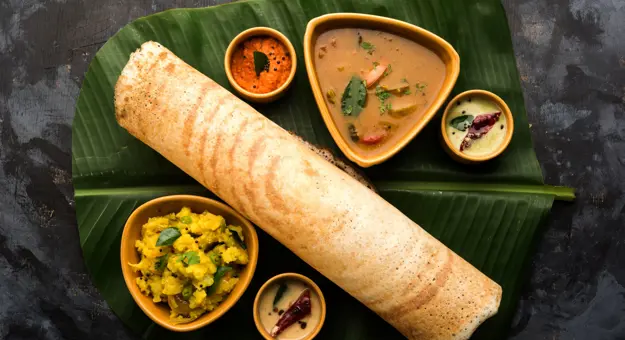
Southern India
Completely unique in flavour, the food in southern India is like nowhere else in the country or the world. Dining here is a culinary delight - particularly in Kerala, where the cuisine has a world-famous reputation and is recognised for its seafood and heavy use of pepper, turmeric and cardamom.
Due to high rainfall, rice is plentiful in south India and is a key feature of most dishes. The south is the home of pappadams and is also known for its delicious deep fried snacks like idlis and vadas – forms of savoury doughnuts often eaten for breakfast.
Those that struggle with spice might have a difficult time, though, for the region is thought to be home to the hottest dishes of India, this is particularly true in Chettinad. If you’re passing through, try a local delicacy called nethili varuval, which is fried anchovies in turmeric and red chilli paste.
DON’T MISS: Dosa, a form of savoury pancake, often cooked roadside, stuffed with spiced mashed potatoes and served with sambar, or pazham pori (banana fritters).
India's food is incredibly diverse and varies from region to region due to differences in climate, culture, and availability of ingredients. Naturally, it's impossible to provide an exhaustive list of every incredible dish from the various regions, but we hope this guide to India's best dishes and culinary offerings has whet your appetite for the local delicacies and given you an idea of the classic Indian dishes in each region.
With so much to see and do in the country, you'll need to fuel your sightseeing with plenty of local fare, and you'll certainly find no shortage of tempting meals and snacks to keep you energised, whichever state you pass through. Whether you’re enjoying fine dining in Mumbai or sampling street food in Kerala, India will delight you with its diverse, flavourful and colourful food creations.
Ready to embark on a culinary journey through India? Have a browse of our multi-city Indian tours below.
Discover more about what India has to offer in our India Destination Guide.
Best India Tours for Foodies:
- Cruise through Alleppey’s verdant backwaters on a traditional thatched houseboat
- Marvel at the Chinese fishing nets along Kochi’s harbour
- Take in the garden city of Bangalore and explore the elegant Summer Palace, a former residence of Mysorean ruler Tipu Sultan
- Flights included
18 days from £2,193 pp
was £2,579 pp
Dates Available
April 2026 - November 2028
Duration
18 days
Depart From
3 airports
Excursions & Visits
14 included
Meals
32 included
- On a guided tour, see the pavilions and palaces of Agra Fort and the famed monument of love, the UNESCO-listed Taj Mahal
- Visit one of Delhi’s most famous and historical monuments, Qutub Minar
- Travel by Jeep to the red sandstone ramparts of the sixth-century Amber Fort
- Flights included
11 days from £1,412 pp
was £1,765 pp
Dates Available
May 2026 - November 2028
Duration
11 days
Depart From
6 airports
Excursions & Visits
12 included
Meals
22 included
- Take in Delhi’s most famed historic sites by rickshaw and discover landmarks on the city’s culinary map
- Survey the City Palace of Udaipur, Jagdish Temple, and the beautiful gardens of Saheliyon-ki of Udaipur
- Drift across Lake Pichola on a cruise, viewing Udaipur’s shoreside palaces and temples from a different angle
- Flights included
14 days from £2,579 pp
was £2,865 pp
Dates Available
September 2026 - November 2027
Duration
14 days
Depart From
5 airports
Excursions & Visits
15 included
Meals
26 included
Discover our blog
The ultimate Kathmandu and Himalayas wish-list
Experience some of the earth’s highest mountains and soak up the glory of a culture based on ancient spirituality.
World Pizza Day: Five unusual pizzas from across the globe
In celebration of World Pizza Day, discover five of the most unique varieties that are enjoyed across the globe.
Four musical meccas you won’t want to miss in the Deep South
It’s no secret that some of the best music in the United States can be found in the Deep South, but what spots stand out in each city?


